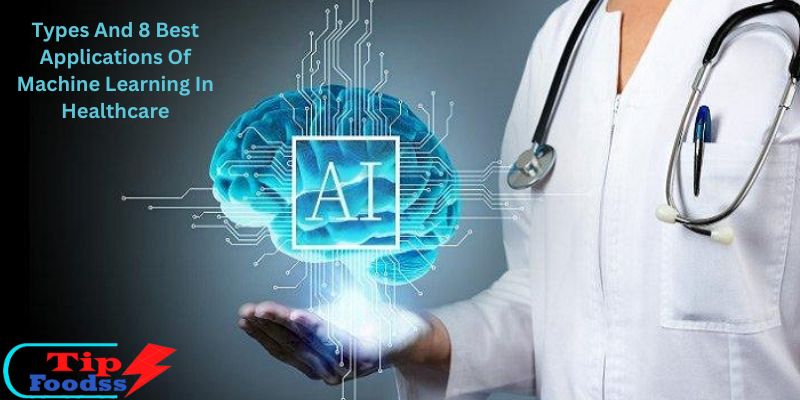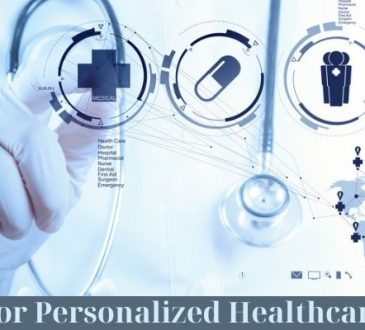Machine Learning In Healthcare – Types And 8 Best Applications You Should Know
In the near future, the use of artificial intelligence (AI) and machine learning (ML) for health care will continue to play a crucial role in revolutionizing healthcare by fostering innovations, facilitating the administration of medical data, and providing effective treatments for chronic diseases. that change. Investment in AI is a priority for 60% of healthcare CEOs, according to the Future Health Index 2022 research by Philips. In this article, with tipfoodss.com, let’s find out some useful life information about machine learning in healthcare!
Contents
1. Types Of Machine Learning In Healthcare
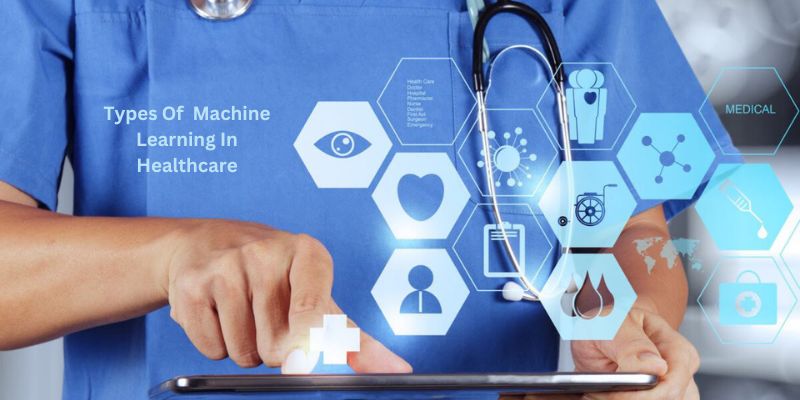
Artificial intelligence as a whole includes machine learning. There are many distinct types of artificial intelligence, but some are more appropriate for the needs of the healthcare industry. In the field of health care, machine learning engineers frequently concentrate on optimizing administrative medical systems (such patient records), identifying trends in sizable clinical data sets, and developing medical tools to aid clinicians. Within these key fields, the following artificial intelligence models are some of the most widely used:
1.1 Deep learning and neural networks – Machine learning in healthcare
A subset of machine learning called neural networks, sometimes referred to as artificially generated neural networks (ANNs) and artificially generated neural networks (SNNs), simulates how the neural structures in our brains are organized. In the healthcare industry, ANNs may be used to provide computer-generated results that are comparable to what human thinking would result in when making a diagnosis.
Deep learning, which is the capacity of the ANN to learn from enormous quantities of data, is based on ANNs. Deep learning might be applied to the healthcare sector to analyze MRI images and other types of medical images and spot irregularities. This doesn’t take the place of the doctor’s job; rather, it strengthens it by reducing the time it takes to develop a diagnosis and starting patient care earlier.
1.2 Processing of natural language – Machine learning in healthcare
The objective of the machine learning approach referred to as “natural language processing” is to equip computers with the ability to recognize, decipher, and generate human language. You use natural language processing to engage with the computer and communicate with it. One use of natural language processing in healthcare is the extrapolation of patient information from medical records.
1.3 Bodily robots – Machine learning in healthcare
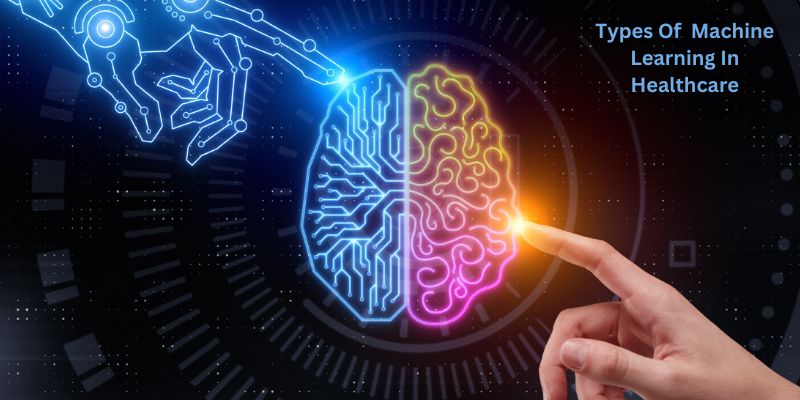
Robots that are physically present in the same room as a doctor are what they are referred to as “physical robots.” During intricate operations requiring precise motions, robots can assist doctors. Robotic surgery frequently results in less intrusive procedures, which can also result in fewer problems and better results.
1.4 Automation of robotic processes – Machine learning in healthcare
For manual jobs like data input, robotic process automation is a sort of machine learning that imitates human behaviors. Machine learning is used by medical businesses and hospitals to automate these processes. This can free up doctors’ and administrators’ time so they can focus on more worthwhile endeavors.
If you are interested in similar topics, you can also refer to AI In Medical Diagnosis – 5 Best Benefits You Should Know.
2. Applications Of Machine Learning In Healthcare
Even though new applications for machine learning are constantly being developed, the majority of them are used in the healthcare industry to enhance patient outcomes and treatment quality. You can select a specialty because machine learning has a wide range of applications in the healthcare industry. By learning about the numerous applications of machine learning in the healthcare sector, such as the ones listed below, you may select the focus that most closely aligns with your interests and career goals.
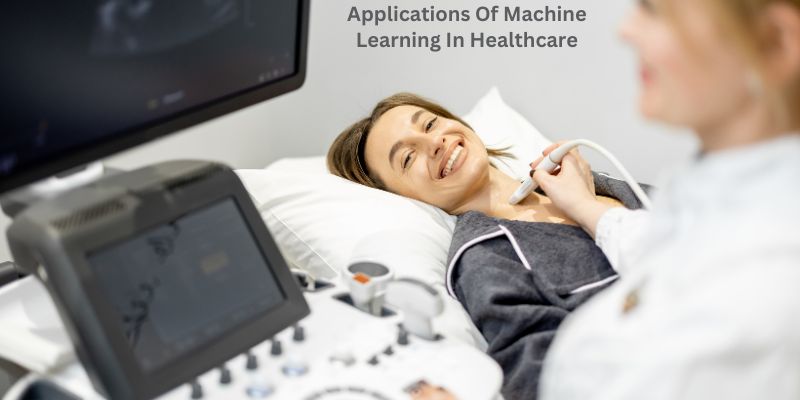
- Disease prediction: Using machine learning, you may analyze vast datasets to identify patterns, forge connections, and draw conclusions. Predicting disease outbreaks in communities and monitoring patient behaviors that contribute to illness are two examples of this.
- Biomedical data visualization: Using machine learning, you may build three-dimensional representations of biomedical data including RNA sequences, protein structures, and genetic profiles.
- Improved illness identification and diagnosis: To diagnose diseases early in their development, identify symptom patterns that were previously unknown and compare them with bigger data sets.
- Improved health records: Maintain current, accurate patient records that are simple for doctors, nurses, and clinic personnel to access.
- AI-assisted surgery: Aids surgeons by doing challenging tasks during operations, enhancing their range of vision, and offering demonstrations of how to perform procedures.
- Personalized treatment choices: Using machine learning, you may examine multi-modal data and decide on the best course of action for each patient based on all available possibilities.
- Machine learning may be used to improve the selection of subjects for clinical trials, the methods used to gather the data, and the outcomes analysis.
- Creating drugs: Machine learning may be used to locate prospective drug delivery systems and create novel treatments to address a range of medical diseases.
Conclusion
Machine learning is a technology used by medical professionals to handle clinical data and care for patients. It is an illustration of artificial intelligence in behavior, where computers are designed to think and learn in ways that are comparable to those of people. This may be used in the healthcare industry to gather and manage patient data, spot patterns in healthcare, suggest therapies, and more. Hospital and healthcare organizations have started to understand how machine learning may enhance decision-making and lower risk in the medical industry, which has resulted in a number of brand-new and interesting job prospects.
I hope you found this article on machine learning in healthcare useful. Have a good day!

